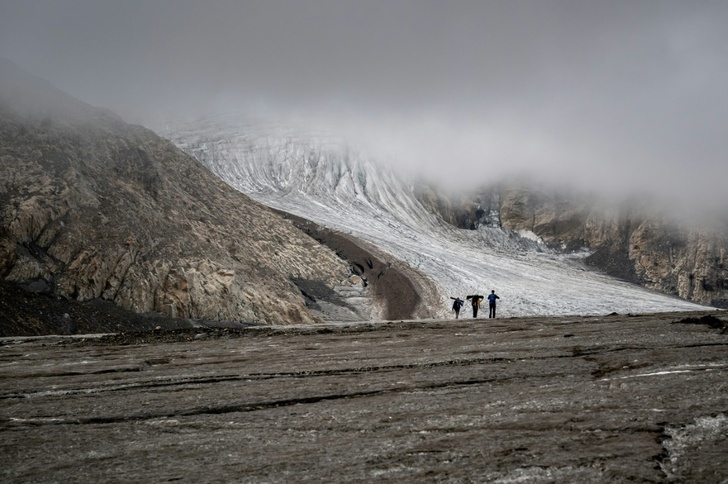The Swiss, feeling the impact of global warming on their rapidly melting glaciers, are expected Sunday to approve a new climate bill aimed at swiftly steering the country towards carbon neutrality.
The referendum, one of several issues in Sunday's round of votes, is over a proposed law that would commit Switzerland to slashing its dependence on imported oil and gas, and to scaling up the development and use of greener and more home-grown alternatives.
The bill, which would also commit Switzerland to becoming carbon neutral by 2050, enjoys strong public backing, though it has seen support slip in the latest survey by pollsters gfs.bern to 63 percent in favour.
The populist right-wing Swiss People's Party (SVP) -- Switzerland's largest party -- has been ramping up its calls for voters to reject the bill, warning it could harm the economy.
Supporters emphasise the need for more energy independence and to address the ravages of climate change, highlighted by the dramatic melting of glaciers in the Swiss Alps, which lost a third of their ice volume between 2001 and 2022.
The wealthy Alpine nation imports around three-quarters of its energy, with all the oil and natural gas consumed coming from abroad.
The proposed "Federal Act on Climate Protection Targets, Innovation and Strengthening Energy Security" would aim to reduce the dependence on other countries and also cut environmental pollution.
- Fossil fuel ban? -
The government proposed the law as an alternative to an effort by climate activists, dubbed the Glacier Initiative, for a popular vote on a total ban on all oil and gas consumption in Switzerland by 2050.
The government balked at the ban idea but drew up a counter-proposal including other elements from the initiative.
The text promises financial support of two billion Swiss francs ($2.2 billion) over a decade to promote the replacement of gas or oil heating systems with climate-friendly alternatives, as well as aid to push businesses towards green innovation.
Nearly all of Switzerland's major parties support the bill, except the SVP, which triggered the referendum under the country's direct democracy system against what it dismisses as the "electricity wasting law".
The SVP says the bill's goal of achieving climate neutrality in just over a quarter-century would effectively mean a fossil fuel ban, which it warns would threaten energy access and send household electricity bills soaring.
The party in 2021 successfully lobbied against a law that would have curbed greenhouse gas emissions.
But there has been a growing push for Switzerland to reduce its reliance on foreign energy sources, after Russia's invasion of Ukraine threw into doubt Swiss access to much of the foreign energy the country uses.
- Corporate tax hike -
Also on the ballot Sunday will be a referendum on whether to hike the tax rate for large businesses.
The government wants to amend the constitution so Switzerland can join an international agreement, led by the Organisation for Economic Cooperation and Development (OECD), towards a global minimum tax rate of 15 percent for multinational corporations.
The latest opinion poll indicated that 73 percent of Swiss voters back the plan, which would impose the new rate on all Swiss-based companies with a turnover above 750 million euros ($808 million).
Until now, many of Switzerland's 26 cantons have imposed some of the lowest corporate tax rates in the world, in what they often said was needed to attract businesses in the face of high wages and location costs.
The Swiss government estimates that revenues from the supplementary tax would amount to 1 billion to 2.5 billion francs in the first year alone.
Bern has acknowledged that efforts would be needed to continue attracting international companies.
It has proposed using some of the additional tax income to promote Switzerland as an attractive business location.
nl/rjm/kjm
© Agence France-Presse
Your content is great. However, if any of the content contained herein violates any rights of yours, including those of copyright, please contact us immediately by e-mail at media[@]kissrpr.com.
Source: Story.KISSPR.com

